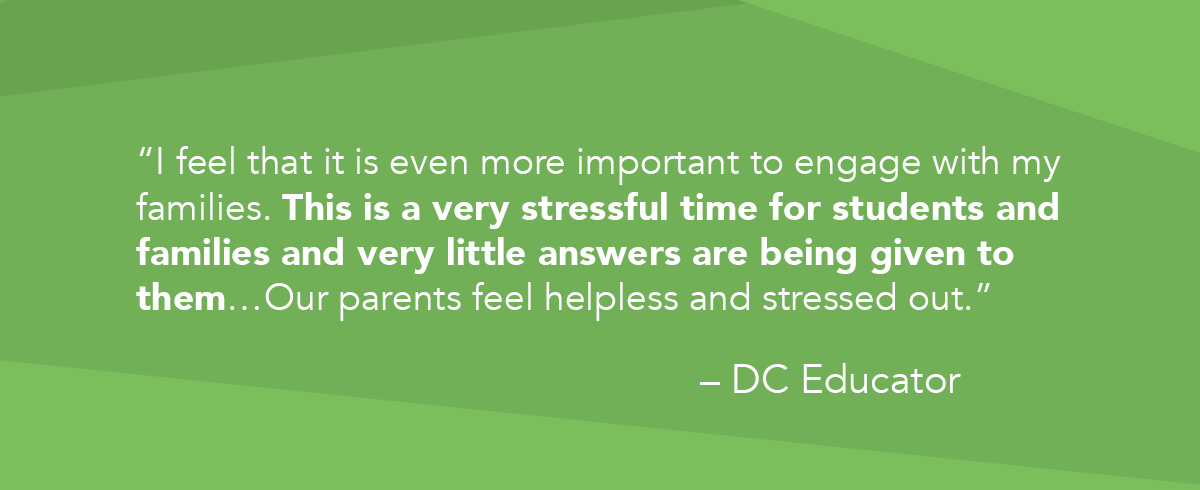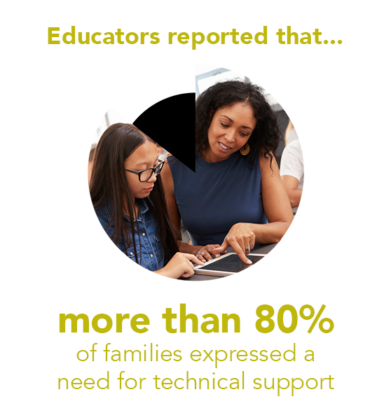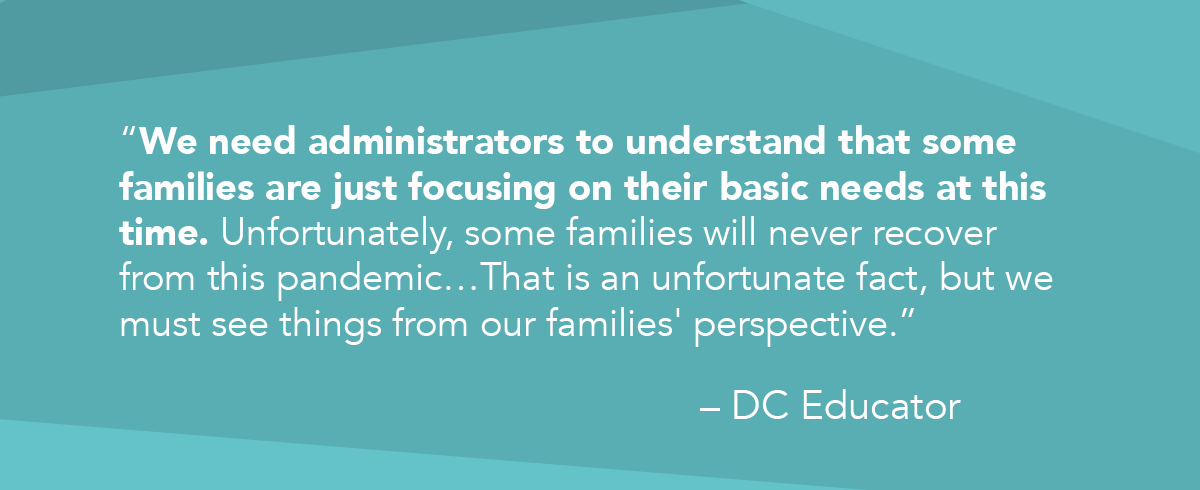By Kamille Seward-Hedgeman
It has now been more than a year since K-12 education experienced a seismic shift. More than a year since students could show up at school and have learning materials at their disposal; where they could have several meals a day; where they had structure in their learning environment, social interaction with their peers, and safety within the school building. As the world prepared to go on lockdown, many school leaders, teachers, nurses, custodians, social workers, guardians, parents, and students went to bed with the same thought: “What comes next?”
As the weeks went on, some students grew accustomed to learning online using their laptops and high-speed internet and were able to take advantage of fun social opportunities via zoom. Other students remained without a device and their names sat on a waiting list. Even after obtaining a device, many students lacked access to the internet and went weeks or even months before being able to join their classmates virtually.

As the pandemic continued and school reopen dates loomed further and further away, families battled many challenges. All families worried and stressed about protecting their family’s health and safety, and often had to make difficult choices to continue providing. Some families had to navigate transportation to food sites or seek shelter. Some had to quit their jobs to stay home with their children and navigate unemployment. Some families who needed it most were denied access to government relief due to their citizenship status. Some felt every part of their world crumble through the loss of a loved one, while others had the privilege of worrying primarily about their child’s learning.
Now, after more than a year of K-12 education during COVID-19, we must look to educators and families to strategize solutions as we seek to recover. As we think about the future, it’s critical that we center the lived experiences and perspectives of those most impacted by the pandemic.
At Flamboyan, we knew the need for technology and the impact of the pandemic on mental health were both significant issues for families at the onset of the pandemic. It wasn’t until we surveyed teachers the following winter that we realized how persistent these barriers still were, even a year later.

Nearly 1,200 educators across 48 DC schools – spanning various wards, grade bands, and subject areas – completed our mid-year teacher survey between December 2020 and January 2021. According to the results, teachers are still reporting technology as the most significant barrier families experience with student learning. Across all wards, more than 80% of teachers reported that families expressed concerns about having technical support to assist their child in navigating various learning platforms, having access to a working device, or having stable internet to keep up with the class.
In addition, more than half of all teachers indicated that mental health and wellness supports for students and families were needed as well. Students, families, teachers, and communities have faced various traumas through the pandemic, and while many are anxious to return to normalcy, families are still currently impacted by stress, anxiety, grief, and depression. In our survey, teachers additionally reported that a common theme contributing to mental health challenges was the absence of activities for students and childcare for families.

We believe at Flamboyan that those closest to a challenge hold the key to solving it, which is why it’s crucial to listen to our communities in an ongoing way. As the nation considers how best to bring back students, with learning loss often at the center of these conversations, it is critical to keep students’ inequitable learning experiences and trauma at the forefront of our decision-making. In DC, we’ve heard from educators that the digital divide and mental health are significant challenges. Nationwide, how will we continue to listen and share power with educators, students, and families as we heal and collectively build a better future for our students?
|
Kamille Seward-Hedgeman is the former Senior Director of School and Community Partnerships at Flamboyan Foundation.